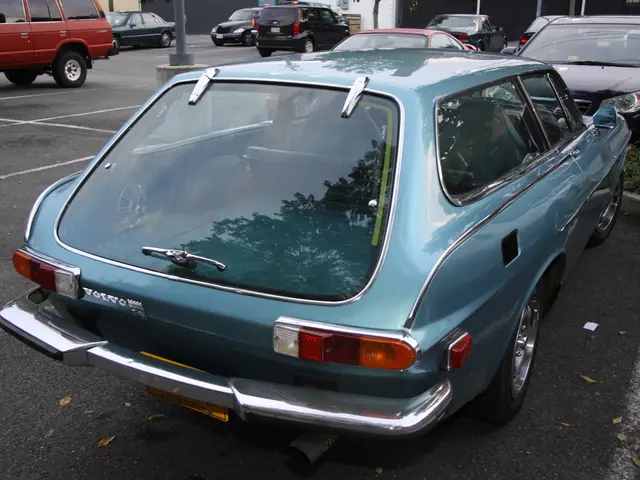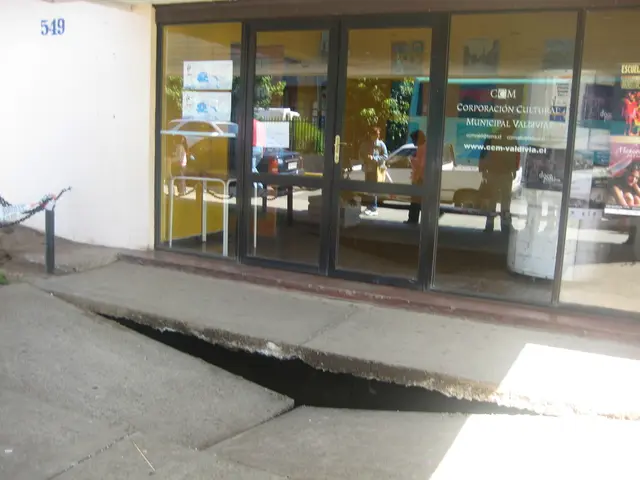Venezuelan Electoral Authorities Reject EU's "Neocolonialist" Interference, Withdraw Invitation for Monitoring
Vibe check: Let's dive into the hot potato of Venezuela's whacky political situation, shall we?
Recap: Venezuela's electoral bigwig, Elvis Amoroso, pulls a surprise move by rescinding the EU's invitation to observe the July 28 presidential election. The reason? The EU slapped selective sanctions on Amoroso and some of his homies, and they didn't much appreciate it.
Spill the tea: In a fiery national broadcast, Amoroso declared that the CNE revoked the EU invitation, accusing the EU of arrogant neocolonialism. He took it a step further by demanding an end to the EU's genocidal sanctions against Venezuela.
The drama: The EU, of course, wasn't too chuffed about being called neocolonialist ne'er-do-wells and expressed regret over the unilateral decision. They reckon the EU observation effort would have been top-notch, and its absence means the elections will lack proper scrutiny.
War of words: Venezuela's Foreign Minister, Yván Gil, and the CNE weren't shy about throwing punches. They claim the EU's meddling resulted in a stranglehold on Venezuelan state companies, gold reserves, and other assets.
FYI: EU's sanctions left a bitter taste in Venezuela's mouth, with numerous travel bans and asset freezes on over 50 state officials. The EU and its members have supported the US's economic blockade directed at Venezuela since 2017.
On the flip side: The CNE isn't left hanging, empty-handed. They've invited dozens of international organizations, including CARICOM, the Carter Center, the African Union, and even the UN, to send observers. Plus, they've extended invitations to over 250 individuals, including human rights defenders and solidarity activists.
Scale tipper: The July 28 election will determine who'll lead Venezuela for the next five years. The incumbent, Nicolás Maduro, is gunning for a third term amidst a US-led sanctions program. Nine rival candidates are jumping to challenge him, with 74-year-old Edmundo González Urrutia being the favored choice of the US-backed opposition.
TL;DR: Venezuela's electoral council cancels the EU's invitation to observe the upcoming presidential election after the EU slaps some sanctions on electoral officials. The EU isn't happy and claims its absence will significantly reduce the level of international scrutiny over the elections. Venezuela is unhappy with EU meddling and accuses EU of neocolonial arrogance. EU claims its observation effort would have been the best, while Venezuela counters with invitations to other international organizations. It's a heated standoff with nine other candidates vying to unseat incumbent Maduro in the July 28 election.
- A Venezuelan official, Elvis Amoroso, who heads the electoral body, CNE, has been criticizing the EU's policies and legislations, accusing them of destabilization in general news and crime-and-justice sectors.
- Amoroso, in a heated television address, additionally criticized the EU's sanctions as genocidal and neocolonial, stating that these sanctions have negatively impacted Venezuela's economic and political processes.
- Amid the controversy, the Venezuelan Foreign Minister, Yván Gil, has been vocal in accusing the EU of meddling in internal affairs, even going so far as to say it has created a stranglehold on Venezuelan state companies, gold reserves, and other assets.
- In a contrasting move, the CNE has extended invitations to several international organizations, including CARICOM, the Carter Center, the African Union, and the UN, to send observers for the upcoming presidential election, thereby signaling an opening for migration and perhaps a willingness to cooperate in the war-and-conflicts arena.
- Despite EU's precarious relationship with Venezuela, several high-profile Venezuelan politicians, including Edmundo González Urrutia, are still receiving support from Western powers such as the United States, implying a continued political tightrope walk where diplomacy with the EU and migration dynamics remain key issues.









